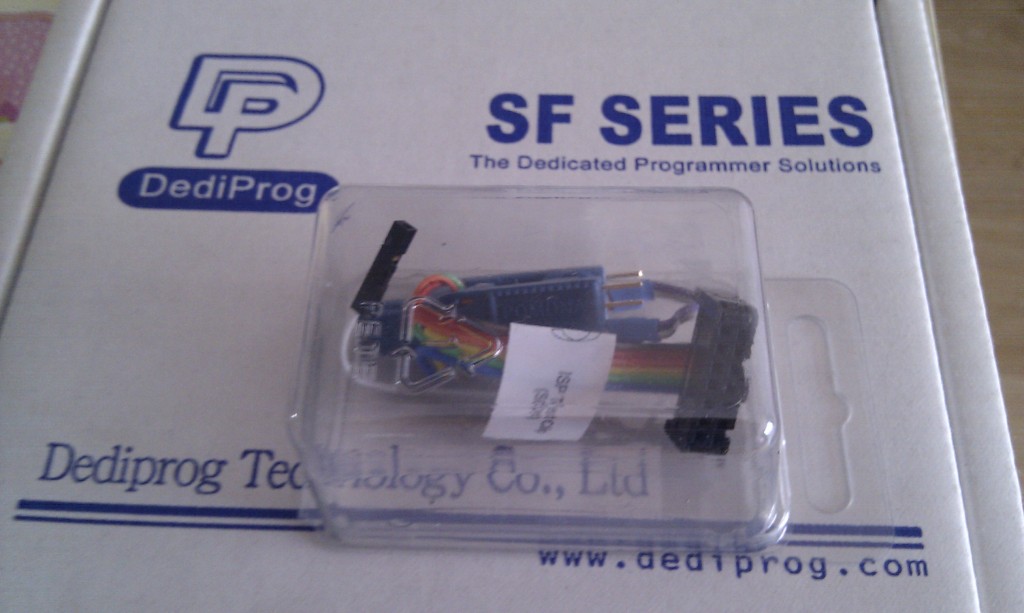The long-pending 0.9.2 version of the open-source, cross-platform, commandline flashrom utility has been released.
From the announce:
New major user-visible features:
* Dozens of newly supported mainboards, chipsets and flash chips.
* Support for Dr. Kaiser PC-Waechter PCI devices (FPGA variant).
* Support for flashing SPI chips with the Bus Pirate.
* Support for the Dediprog SF100 external programmer.
* Selective blockwise erase for all flash chips.
* Automatic chip unlocking.
* Support for each programmer can be selected at compile time.
* Generic detection for unknown flash chips.
* Common mainboard features are now detected automatically.
* Mainboard matching via DMI strings.
* Laptop detection which triggers safety measures.
* Test flags for all part of flashrom operation.
* Windows support for USB-based and serial-based programmers.
* NetBSD support.
* DOS support.
* Slightly changed command line invocation. Please see the man page for details.
Experimental new features:
* Support for some NVIDIA graphics cards.
* Chip test pattern generation.
* Bit-banging SPI infrastructure.
* Nvidia MCP6*/MCP7* chipset detection.
* Support for Highpoint ATA/RAID controllers.
Infrastructural improvements and fixes:
* Lots of cleanups.
* Various bugfixes and workarounds for broken third-party software.
* Better error messages.
* Reliability fixes.
* Adjustable severity level for messages.
* Programmer-specific chip size limitation warnings.
* Multiple builtin frontends for flashrom are now possible.
* Increased strictness in board matching.
* Extensive selfchecks on startup to protect against miscompilation.
* Better timing precision for touchy flash chips.
* Do not rely on Linux kernel bugs for mapping memory.
* Improved documentation.
* Split frontend and backend functionality.
* Print runtime and build environment information.
The list of supported OSes and architectures is slowly getting longer, e.g. these have been tested: Linux, FreeBSD, NetBSD, DragonFly BSD, Nexenta, Solaris and Mac OS X. There's partial support for DOS (no USB/serial flashers) and Windows (no PCI flashers). Initial (partial) PowerPC and MIPS support has been merged, ARM support and other upcoming.
Also, the list of external (non-mainboard) programmers increases, e.g. there is support for NICs (3COM, Realtek, SMC, others upcoming), SATA/IDE cards from Silicon Image and Highpoint, some NVIDIA cards, and various USB- or parallelport- or serialport- programmers such as the Busirate, Dediprog SF100, FT2232-based SPI programmers and more.
More details at flashrom.org and in the list of supported chips, chipsets, baords, and programmers.
I uploaded an svn version slightly more recent than 0.9.2 to Debian unstable, which should reach Debian testing (and Ubuntu I guess) soonish.

